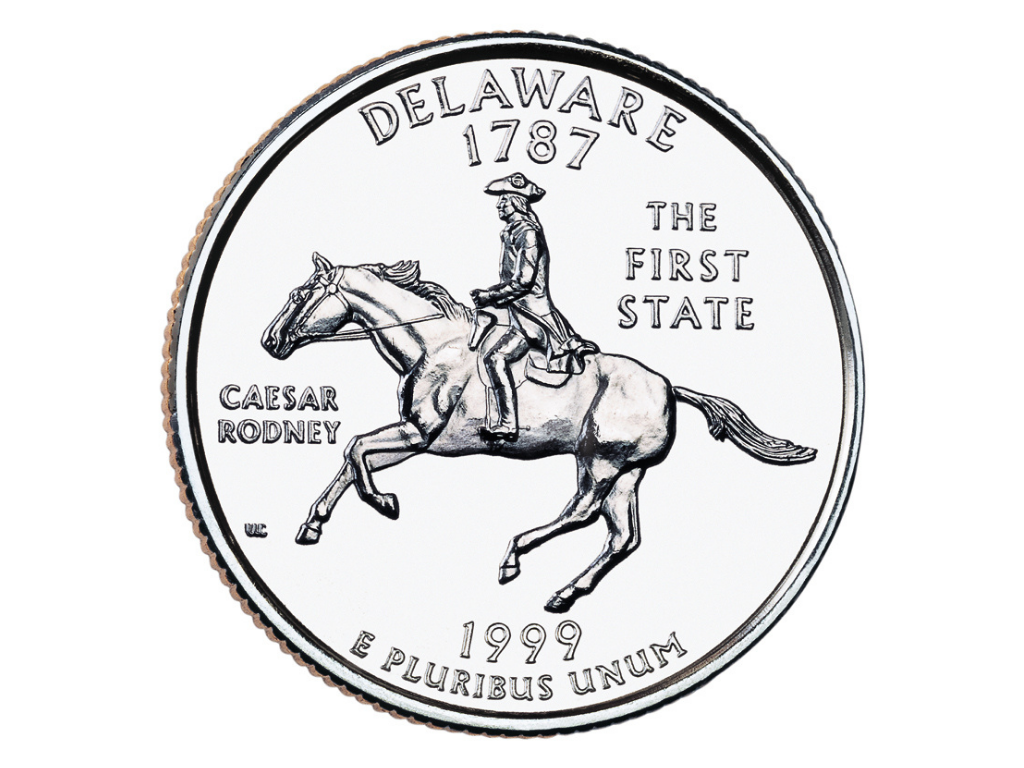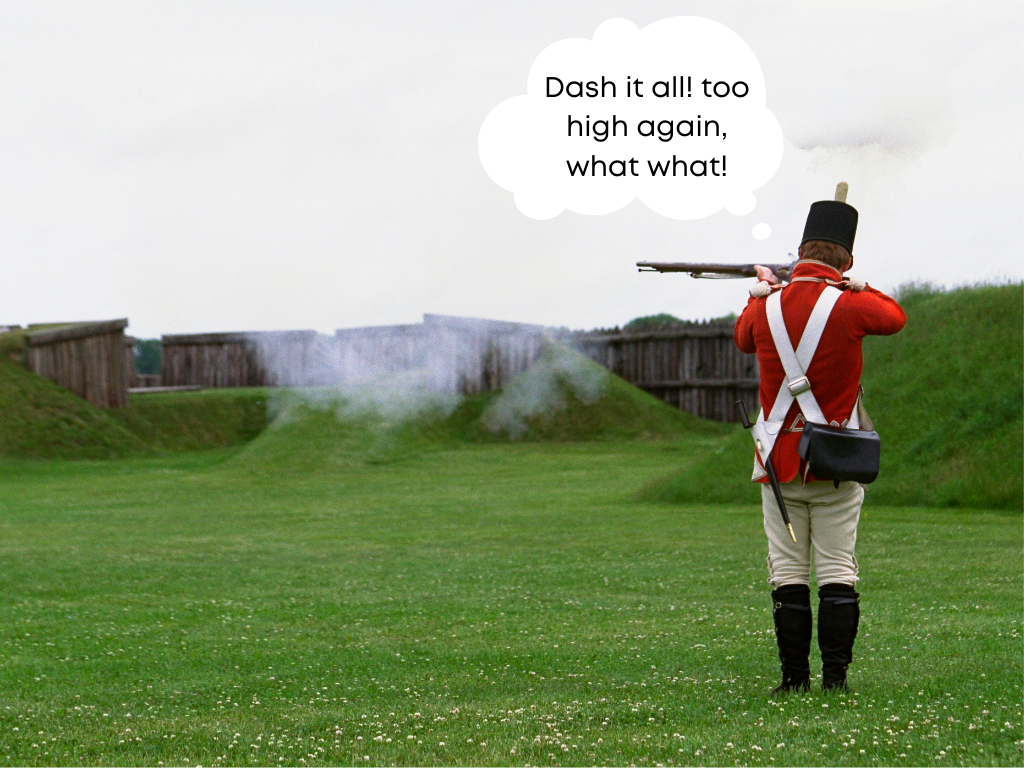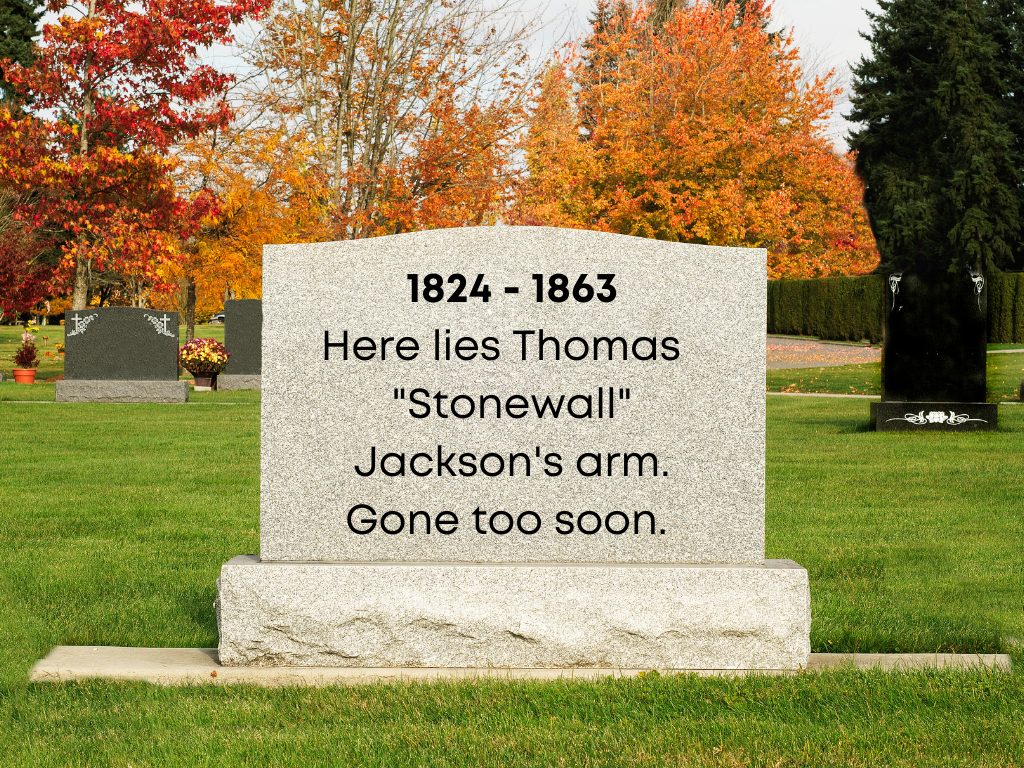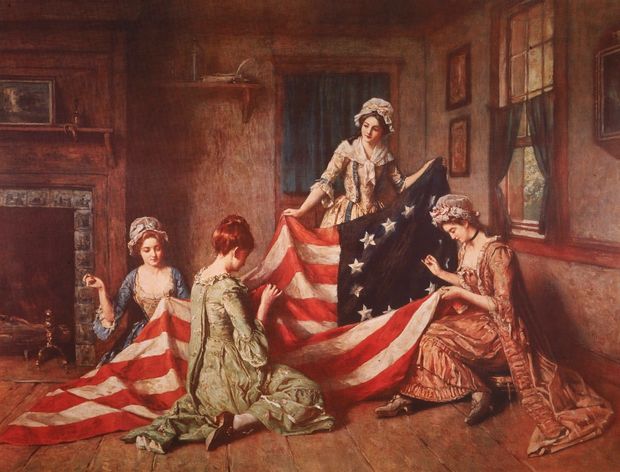Every year, on July 4th, tens of millions of Americans take the day off from work to celebrate the biggest birthday bash of the year: America’s. Independence Day marks the anniversary of the date (1776) that the 13 colonies—made up of people from different backgrounds with different ideals—banded together to fight for independence from their colonial powers so that they could live and prosper under their own governance.
[To master the fundamentals of America's history more efficiently, check out the following collections of expert-curated flashcards in Brainscape: AP U.S. History; U.S. History 101, U.S. History 102, U.S. Government.]
Now, chances are, you would have had those facts drummed into your skull throughout your schooling ... but did you know the following interesting facts about each of America's first 13 states?
1. Delaware’s faceless founding father

Delaware’s state quarter features a picture of founding father Caesar Rodney, even though historians don’t know what Rodney looked like. Rodney had a severe form of facial cancer, always kept his face covered with a green cloth, and never had his portrait painted. But that didn’t stop him from making an epic 80-mile ride on horseback in 1776, just in time to sign the Declaration of Independence.
2. Pennsylvania has a giant shoe that accommodates two
In 1948, self-proclaimed “Shoe Wizard” Mahlon Haines built a gigantic shoe in which he let elderly couples stay. It had three bedrooms, two bathrooms, and a kitchen, and the couples were treated to a maid, cook, chauffeur, and automobile—all on Haines’ dime. To this day, the shoe remains open in Hellam, Pennyslvania for tours, but is now home to an ice cream shop.
[Psssst! Studying for AP History? Here's how to do that smarter and more efficiently!]
3. In New Jersey, full-service gas stations aren't an option... they're a way of life
Seriously, New Jersey bans patrons from pumping their own gas. In 1949, out of concerns that pumping your own fuel was dangerous, the state ruled that gas station attendants would do it for patrons. Must be nice in winter not having to get out of your car!
4. Georgia, the ... Peanut State?

Okay so Georgia is actually known as the “Peach State,” but peaches aren’t Georgia’s only key export. The state is also well known for its pecans and peanuts. In fact, former President Jimmy Carter, a proud Georgian, was once a peanut farmer.
5. Connecticut and the 'Battle of the Frogs'
One hot summer night, during the terrible drought of 1758, the residents of Windham, Connecticut were awoken by a terrible cacophony. In a panic, because they believed themselves to be under attack, the citizens armed themselves and rushed toward the source of the commotion, only to discover a terrible carnage had taken place—except, the damage wasn’t to human life.
Thousands of frogs had fought to the death over the last puddle of water in the town pond, such was their desperation. And it thus became known as the 'Battle of the frogs'.
6. Massachusetts has a "first" for everything
Massachusetts has had a surprising number of firsts, from the first volleyball game in 1895 to the first Dunkin’ Donuts in 1950. Here are some other notable achievements:
- First Thanksgiving: 1621
- First public park: Boston Commons, 1634
- First university: Harvard, 1636
- First public library: Boston, 1653
- First revolutionary war battle: Lexington, 1775
- First black church: Boston, 1806
- First railroad: Quincy, 1826
- First typewriter: Worcester, 1850
- First Christmas card: Boston, 1875
- First telephone: Boston, 1876
- First basketball game: Springfield, 1891
- First subway: Boston, 1898
- First automatic digital computer: Boston, 1944
7. Maryland fooled the Redcoats

During the War of 1812, which was fought by the United States and its indigenous allies against Great Britain, residents of Saint Michaels, Maryland were able to fool British artillerymen and, in doing so, protect almost all of the houses and people in the town.
How did they do this? By hoisting lamps onto ships’ masts and into the tops of trees. At night, the altitudinous burning lamps made the town appear to be much higher up than it actually was, fooling artillerymen into miscalculating the range and overshooting the town. So effective was this strategy that only one house, the Cannonball House, was struck!
Interesting read: '13 Wars in history that have shaped the world'
8. Think twice before getting engaged in South Carolina, because you could be subject to a lawsuit if you back out
Unless you seriously intend to go through with the whole shebang, you might want to rethink getting engaged! In South Carolina, you can get sued for breaking off an engagement if you don't have a good enough reason. "Breach of Promise to Marry" suits are a legacy of an era when getting married (and staying married) was more important than people's happiness. As such, most states dropped this law in 1930. But not South Carolina!
9. New Hampshire hosts the first presidential primary each election cycle
New Hampshire law requires that the state presidential primary be held seven days before any similar event in any other state, meaning that out of all the 50 states, New Hampshire has the first presidential primary each election cycle.
10. Virginia is where Stonewall Jackson rests in pieces

Legendary Confederate general Thomas “Stonewall” Jackson’s arm was given a proper burial, complete with a headstone, after he lost it to friendly fire in the Battle of Chancellorsville in 1863. Jackson was later carried to a plantation where he eventually died of pneumonia. He too was given a proper burial, some 150 miles away from his arm.
11. New York’s Empire State Building was designed for docking blimps
The architects who designed one of the most iconic buildings in the world actually envisioned blimps would anchor to the spire and passengers could descend via gangplank to the 102nd floor. Then the Hindenburg exploded—because, let's face it, flying humans around in oversized balloons filled with explosively flammable gas was never going to be a good idea—and instead, blimps were relegated to providing aerial coverage of football games.
Check out: 'What are the longest-lasting empires, governments, or nations?'
12. North Carolina was the site of the nation’s most impressive disappearing act
In 1587, a group of English folks settled and established a colony at Roanoke Island off the coast of North Carolina. Three years later, their countrymen arrived to visit, only to find the settlement had completely vanished. The cabins were gone, the livestock disappeared, and the only thing that remained was the word “Croaton” carved on a post and “Cro” carved on a tree. The “Lost Colony” was never found. Spooky 👻
13. Rhode Island—World Series champs!
Well, not exactly, but they did have a Major League Baseball team that won a championship in 1884 akin to the modern-day World Series. The Providence Grays played in the National League and featured star pitcher Charles “Old Hoss” Radbourn. Old Hoss won 59 games in 1884 – a record that will never be broken.
